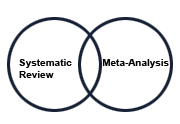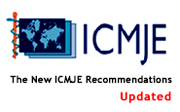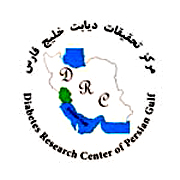Editorial Policy
Open Access
Our journals follow the Budapest Open Access Initiative (BOAI) funding model by the following link; https://www.budapestopenaccessinitiative.org/ (2019).
All contents of the journals freely available to readers/ authors and all institutions without a limitation period. Individuals can search, copy, print, read and download and also distribute full texts of the papers.
In our journals, the accepted articles by peer review will be published under a Creative Commons Attribution License (CC-BY) https://creativecommons.org/licenses/by/4.0/ (2019).
Author fees
Please see the platform of each journal.
Permissions
It is the duty of the authors to get permission from copyright containers for copying photos, figures or tables that will not be published. The authors should submit the certification of permission along with the submission.
Disclaimer
Facts and opinions in papers published in our journals are uniquely the personal statements of respective authors. Authors are responsible for all contents in their article(s) including accuracy of the facts, statements, and citing the resources
Advertising Policy
None of our journals accept advertisement. We absolutely are not willing to publish any advertisement.
The journal’s policy on preprint articles
Authors are not allowed to submit preprint papers.
Publication Ethics and Malpractice Statement
Publication and authorship
- All submitted manuscripts to our journals are subject to a strict peer-review process by at least two international reviewers and one local reviewer that are experts in the area each journal.
- The factors that are taken into account in the review are relevance, soundness, significance, originality, readability, and language.
- The possible decisions include acceptance, acceptance with revisions, or rejection.
- If authors are encouraged to revise and resubmit a submission, there is no guarantee that the revised submission will be accepted.
- Rejected manuscripts will not be re-reviewed.
- The manuscript acceptance is constrained by such legal requirements as shall then be in force regarding libel, copyright infringement, and plagiarism.
- No research can be included in more than one publication.
Authors' responsibilities
- Authors must certify that their manuscripts are their original work.
- Authors must certify that the manuscript has not previously been published elsewhere.
- Authors must certify that the manuscript is not currently being considered for publication elsewhere.
- Authors must participate in the peer review process.
- Authors are obliged to provide retractions or corrections of mistakes.
- All Authors mentioned in the paper must have significantly contributed to the research.
- Authors must state that all data in the paper are real and authentic.
- Authors must notify the editors of any conflicts of interest.
- Authors must identify all sources used in the creation of their manuscripts.
- Authors must report any errors they discover in their published papers to the editors.
Please complete the authors’ agreement form provided on the journal website and send it through email to the journal.
Reviewers' responsibilities
- Reviewers should keep all information regarding papers confidential and treat them as privileged information.
- Reviews should be conducted objectively, with no personal criticism of the author
- Reviewers should express their views clearly with supporting arguments
- Reviewers should identify relevant published work that has not been cited by the authors.
- Reviewers should also call to the editor-in-chief's attention any substantial similarity or overlap between the manuscript under consideration and any other published paper of which they have personal knowledge.
- Reviewers should not review manuscripts in which they have conflicts of interest resulting from competitive, collaborative, or other relationships or connections with any of the authors, companies, or institutions connected to the papers.
For more information, please look at the checklist for review provided on the journal website.
Editors' responsibilities
- Editors have complete responsibility and authority to reject/accept an article.
- Editors are responsible for the contents and overall quality of the publication.
- Editors should always consider the needs of the authors and the readers when attempting to improve the publication.
- Editors should guarantee the quality of the papers and the integrity of the academic record.
- Editors should publish errata pages or make corrections when needed.
- Editors should have a clear picture of a research's funding sources.
- Editors should base their decisions solely on the paper's importance, originality, clarity, and relevance to the publication's scope.
- Editors should not reverse their decisions nor overturn the ones of previous editors without serious reason.
- Editors should preserve the anonymity of reviewers.
- Editors should ensure that all research material they publish conforms to internationally accepted ethical guidelines.
- Editors should only accept a paper when reasonably certain.
- Editors should act if they suspect misconduct, whether a paper is published or unpublished, and make all reasonable attempts to persist in obtaining a resolution to the problem.
- Editors should not reject papers based on suspicions; they should have proof of misconduct.
- Editors should not allow any conflicts of interest between staff, authors, reviewers, and board members.
Plagiarism
Our journals are committed on publishing only original materials (materials that neither have been published elsewhere nor are under review elsewhere). All the journals are powered by the iThenticate® software, a plagiarism detector software that detects the originality of content submitted before publication. If plagiarism is recognized, we act based on flowcharts and workflows regulated by the COPE.
Plagiarism could be the following items
Direct copying the text from other articles
Copying concepts, photos, or data from other published sources
Copying the text from the own previously published materials
Plagiarism Policies
If plagiarism is recognized, the manuscript will be rejected. Additionally, if plagiarism is detected after the publication of the paper, the will retract according to the COPE guidelines.
Duplicate Submission
Papers, which have been published elsewhere, or to be under review elsewhere, will incur duplicate submission/publication sanctions. If authors have used their own previously published study, or study that is currently under review, as the basis for a submitted manuscript, they are required to cite the previous paper and indicate how their submitted manuscript offers novel contributions beyond those of the previous work.
Citation Manipulation
Submitted papers that are found to include citations whose primary purpose is to increase the number of citations to a given author’s article, or to articles published in a particular journal, will incur citation manipulation sanctions.
Data Fabrication and Falsification
Submitted papers that are found to have either fabricated or falsified experimental results, including the manipulation of images, will incur data fabrication and falsification sanctions.
Improper Author Contribution or Attribution
All listed authors must have made a significant scientific contribution to the study in the paper and approved all its claims. It is important to list everyone who made a significant scientific contribution, including students and laboratory technicians.
Redundant Publications
Redundant publications involve the inappropriate division of study outcomes into several articles.
Process for Identification of and Dealing with Allegations of Research Misconduct
Society of Diabetic Nephropathy Prevention (http://www.sdiabeticnephropathy.com/index.php) as the publisher and the Editor-in-Chief of each journal will take practical steps, which comprise technological and personal knowledge available to identify and block the publication of papers where research misconduct has arisen, containing citation manipulation, plagiarism, and data falsification/fabrication among others. All of our journals respect to the COPE's guidelines (http://publicationethics.org/resources/guidelines) in dealing with allegations.
Editorial Freedom
Our journals follow to the World Association of Medical Editors (WAME) Policy on “The Relationship between Journal Editors-in-Chief and Owners”. Accordingly, the Editor-in-Chief has editorial independence and therefore has full authority over the journal’s editorial content counting how and when information is published. Editorial decisions are based solely on the validity of the papers and their importance to readers, not on the policies or commercial interests of the owner. Neither the Publisher nor other organizations interfere in the evaluation, selection, or editing of individual articles, either directly or by creating an environment in which editorial decisions are influenced.
CrossMark Policy
CrossMark is a multi-publisher initiative to offer a standard system for readers to find the current version of a piece of content. Through utilizing the CrossMark logo, this journal is committing to keeping the content it and notifying the readers of changes when it occurs.
All papers have the CrossMark logo in PDF. Clicking on the CrossMark logo at the top of each article in a PDF file will indicate the status of a document and may also give additional data about the document.
For more information on CrossMark, please check the CrossMark website by the following link:
https://www.crossref.org/services/crossmark/
Privacy Statement
The characteristics of the authors containing names and email addresses, which are registered on the journal’s website, will be conducted only for the aims of the journal and will not be directed for any other reason.
Retraction
- In keeping with COPE's Retraction Guidelines, a retraction will be considered by our editors if:
- It has clear evidence indicating the results are unreliable, either because of major errors (eg, miscalculation or experimental error, data fabrication, image manipulation, …)
- It has plagiarism.
- The findings have previously been published elsewhere without proper citation to previous sources, permission to reproduce, or justification (ie, cases of redundant publication)
- There is a copyright infringement or other legal issues
- It reports unethical research
- It has been published solely on the basis of a compromised or manipulated peer review process
- The author(s) failed to declare a major conflict of interest
Authors or editors of the journal may retract a paper. However, the final decision is made by the editors for retracting the material. If none of the authors will approve publishing a retraction, the editor/s may request such a retraction from the investigating institution, or the editor may ask for a retraction on behalf of the journal. In each condition, the editor should inform the author(s) or institution affiliated with the author(s) for publishing a retraction.
- Note: After publishing a retraction, HTML version of the document will be removed from the site. Additionally, The PDF file of the article is retained unchanged; only a watermark showing the “retracted” label is placed on each page of the PDF. Finally, a link is made to the original article.

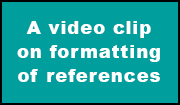

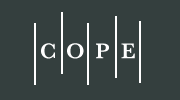 Journals of society of diabetic nephropathy prevention follow the principles and issues of, the Committee on Publication Ethics (COPE).
Journals of society of diabetic nephropathy prevention follow the principles and issues of, the Committee on Publication Ethics (COPE).
